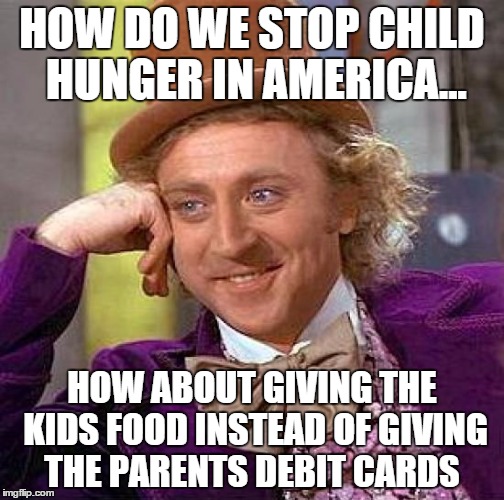198 ensnared in Jacksonville food stamp fraud totaling $3.7M
Businesses swapped SNAP benefits for cash, even drugs
By Chris Parenteau - Reporter, Corley Peel - Reporter, Steve Patrick - News4Jax digital managing editor
https://www.news4jax.com/news/local/jacksonville/jacksonville-busts-organized-fraud-ring
JACKSONVILLE, Fla. - Sheriff Mike Williams announced Tuesday the results of a multi-agency, undercover investigation into the exchange of Supplemental Nutrition Assistance Program benefits for cash and, in at least one case, cocaine.
From 2012 to 2017, Jacksonville Sheriff's Office detectives, working with federal and state agencies, documented more than 22,000 fraudulent transactions involving $3.7 million in taxpayer money.
"These people are selling or stealing money from hardworking taxpayers right here in our community, and they are abusing a program that is meant to help people," Williams said.
Williams said that during Operation Half-Back, undercover officers personally observed 115 individuals in 390 fraudulent transactions from February to July 2017.
Investigators said those with SNAP/EBT (Electronic Benefits Transfer) cards would give their PIN number to the buyer, and that money would then be deposited into their accounts.
Williams said, in most cases, the food-stamp recipient received 50 cents per $1 of SNAP benefit used. Each transaction was recorded.
The operation originally focused on operators of brick-and-mortar stores, but investigators learned that many of the perpetrators became mobile business -- such as meat, seafood and produce vendors -- so they could apply to the U.S Department of Agriculture to accept SNAP benefits. Williams said they sold very little merchandise, as most of their volume was exchanging SNAP benefits for cash.
Those accused include 21 people considered recruiters or intermediaries charged with organized schemes to defraud and public assistance fraud.
There were also 177 people accused of selling their benefits who face charges of public assistance fraud -- most of those felonies because the transaction involved more than $200. The Sheriff's Office said 161 warrants are still waiting to be issued.
"Food stamp trafficking steals from Florida's hardworking taxpayers," Attorney General Pam Bondi said in a statement. "The SNAP/EBT program is designed to provide services to the most vulnerable among us and for anyone to take advantage of this system is shameful."
The Office of Public Benefits Integrity told News4Jax that if the people arrested are found guilty of fraud, they'll be required to pay that money back.
“It’s very frustrating because the people who actually have a need for the EBT cards are getting shorted," said taxpayer Hugh Hyatt.
Jasmine Coleman, who recently applied for SNAP benefits, said it's upsetting knowing people are abusing the program that's meant to help families like hers.
"To support my daughters and me, I'm a server and I don't make that much and food is starting to get very expensive," she said. "It's making it harder for us to receive benefits and for us to actually get support and use it the right way."
Williams singled out four businesses he said were the biggest offenders found during the fraud investigation.
Businesses swapped SNAP benefits for cash, even drugs
By Chris Parenteau - Reporter, Corley Peel - Reporter, Steve Patrick - News4Jax digital managing editor
https://www.news4jax.com/news/local/jacksonville/jacksonville-busts-organized-fraud-ring
JACKSONVILLE, Fla. - Sheriff Mike Williams announced Tuesday the results of a multi-agency, undercover investigation into the exchange of Supplemental Nutrition Assistance Program benefits for cash and, in at least one case, cocaine.
From 2012 to 2017, Jacksonville Sheriff's Office detectives, working with federal and state agencies, documented more than 22,000 fraudulent transactions involving $3.7 million in taxpayer money.
"These people are selling or stealing money from hardworking taxpayers right here in our community, and they are abusing a program that is meant to help people," Williams said.
Williams said that during Operation Half-Back, undercover officers personally observed 115 individuals in 390 fraudulent transactions from February to July 2017.
Investigators said those with SNAP/EBT (Electronic Benefits Transfer) cards would give their PIN number to the buyer, and that money would then be deposited into their accounts.
Williams said, in most cases, the food-stamp recipient received 50 cents per $1 of SNAP benefit used. Each transaction was recorded.
The operation originally focused on operators of brick-and-mortar stores, but investigators learned that many of the perpetrators became mobile business -- such as meat, seafood and produce vendors -- so they could apply to the U.S Department of Agriculture to accept SNAP benefits. Williams said they sold very little merchandise, as most of their volume was exchanging SNAP benefits for cash.
Those accused include 21 people considered recruiters or intermediaries charged with organized schemes to defraud and public assistance fraud.
There were also 177 people accused of selling their benefits who face charges of public assistance fraud -- most of those felonies because the transaction involved more than $200. The Sheriff's Office said 161 warrants are still waiting to be issued.
"Food stamp trafficking steals from Florida's hardworking taxpayers," Attorney General Pam Bondi said in a statement. "The SNAP/EBT program is designed to provide services to the most vulnerable among us and for anyone to take advantage of this system is shameful."
The Office of Public Benefits Integrity told News4Jax that if the people arrested are found guilty of fraud, they'll be required to pay that money back.
“It’s very frustrating because the people who actually have a need for the EBT cards are getting shorted," said taxpayer Hugh Hyatt.
Jasmine Coleman, who recently applied for SNAP benefits, said it's upsetting knowing people are abusing the program that's meant to help families like hers.
"To support my daughters and me, I'm a server and I don't make that much and food is starting to get very expensive," she said. "It's making it harder for us to receive benefits and for us to actually get support and use it the right way."
Williams singled out four businesses he said were the biggest offenders found during the fraud investigation.






